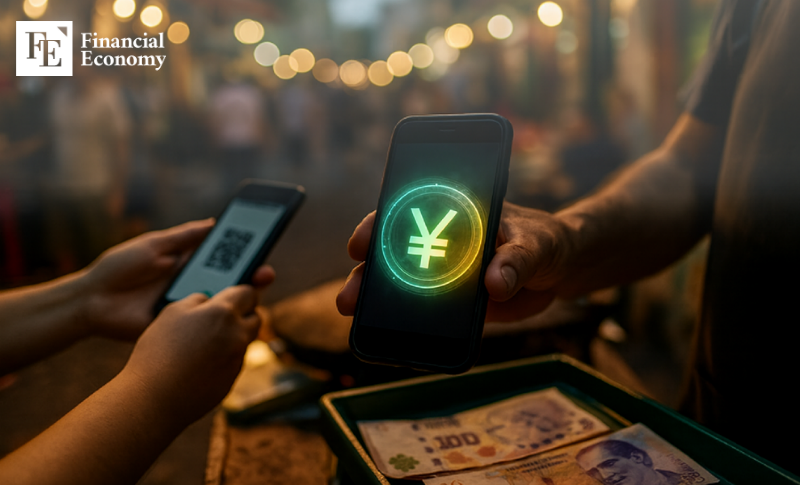PayPay–Binance Japan Alliance Signals Japan’s Shift Toward a Cashless, Web3 Economy
Input
Modified
PayPay and Binance Japan Partner Amid Stablecoin Boom PayPay Eyes Expansion Ahead of IPO Japan Moves Beyond Cash Toward a Cashless Society

Japan’s cashless payment giant PayPay has reportedly acquired a significant stake in Binance Japan. The two companies plan to leverage their respective services and technologies to expand Japanese consumers’ access to Web3 finance. As the global stablecoin market grows rapidly, Japan—long known for its cash-based economy—is beginning to see the rising presence of cryptocurrency and other cashless payment systems.
PayPay–Binance Partnership Takes Shape
On the 13th, Binance announced that its Japanese subsidiary, Binance Japan, has entered into a strategic partnership with PayPay, a SoftBank Group affiliate. Under the deal, PayPay acquired a 40% stake in Binance Japan, which will now be accounted for as an equity-method affiliate of PayPay. The acquisition price was not disclosed by mutual agreement.
Analysts view the partnership as an effort to create synergy through the integration of both companies’ services and technologies. As part of the collaboration, Binance Japan users will be able to buy cryptocurrencies and withdraw proceeds directly through PayPay Money, PayPay’s digital wallet service. The service enables users to store funds digitally and make cashless payments across various merchants, online stores, and peer-to-peer transactions.
Takeshi Chino, General Manager of Binance Japan, called the partnership “a significant step toward the future of digital finance in Japan,” adding that “combining PayPay’s vast user base with Binance’s cutting-edge technology will make Web3 more accessible nationwide while delivering secure and seamless digital asset services.” Masayoshi Yanase, Head of Financial Strategy at PayPay, said the stake acquisition aims to “offer Binance users a solution that combines PayPay’s convenience with robust security.”
What’s Behind the Partnership?
The driving force behind the PayPay–Binance alliance is the ongoing “financial transformation” centered on stablecoins. The global financial landscape is rapidly shifting toward blockchain-based systems. According to blockchain analytics site rwa.xyz, global remittances made via stablecoins reached $26.26 trillion as of the 10th of this month, up 36% year over year. With SWIFT announcing its integration of blockchain and global payment networks such as Visa and Mastercard adopting stablecoin technology, the world’s financial infrastructure is beginning to move from the internet-based “Web2” era to the blockchain-powered “Web3” era.
Analysts also suggest PayPay is accelerating its expansion ahead of its planned IPO. In August, Reuters reported that SoftBank—PayPay’s parent company—has selected Goldman Sachs, J.P. Morgan Chase, Mizuho Financial Group, and Morgan Stanley as potential underwriters for the listing. Sources said the IPO could take place as early as the fourth quarter of this year, with expected fundraising exceeding $2 billion, though timing and valuation may shift depending on market conditions.
In preparation for the listing, PayPay has steadily broadened its business reach. Last month, the company announced its entry into the Korean market, where some stores will begin accepting PayPay’s QR code payment system as early as this year. This would make PayPay the first Japanese QR payment service to be officially available overseas. The company said it plans to expand into other international markets after Korea and is currently in discussions with multiple foreign service providers to that end.

The Era of Cash Loyalty Is Over
Observers say PayPay’s stake acquisition in Binance Japan reflects Japan’s broader shift away from a cash-dominated payment system. The country’s reliance on physical money has declined sharply in recent years. According to Japan’s Ministry of Economy, Trade and Industry, cashless payments—including credit cards, e-money, and QR codes—reached 141 trillion yen ($935 billion) last year, accounting for 42.8% of total consumer spending. That figure is roughly three times higher than in 2010, when cashless payments totaled 38 trillion yen (13.2% share), marking an all-time record.
As Japan’s transition toward cashless transactions accelerates, cryptocurrencies—especially stablecoins—are also gaining traction. Former Prime Minister Shigeru Ishiba described Web3 as “a new turning point comparable to the Industrial Revolution” at the WebX 2025 conference in Tokyo in August. Once known as the “analog nation” for its deep attachment to cash, Japan is now moving rapidly toward blockchain adoption.
Market sentiment surrounding yen-based stablecoins is also upbeat. In an analysis published by CryptoQuant contributor XWIN Research Japan, the firm noted that “JPYC sits at the intersection of Japan’s digital transformation and the rapidly growing stablecoin market.” Considering the pace of expansion, JPYC could reach a market size of $70 billion by 2030. The report added that JPYC fully complies with Japan’s revised Payment Services Act and is fully collateralized, suggesting it could emerge as Asia’s leading digital yen.






















Comment